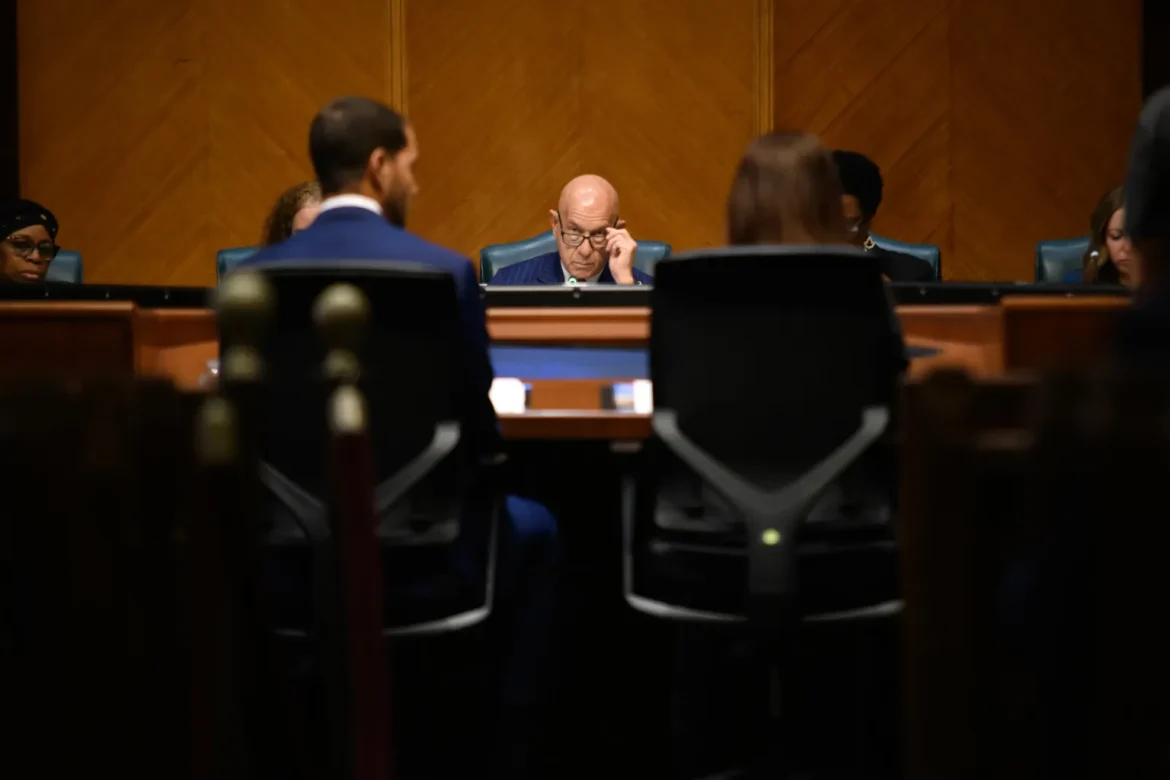HOUSTON, Texas– Houston Mayor John Whitmire has released the findings of an efficiency audit that examined city departments.
The study, conducted by Ernst and Young, identifies areas of potential mismanagement and lack of accountability within city operations.
The exact monetary savings resulting from the audit will be clarified in the mayor’s proposed budget, which is expected to be presented in the spring.
The audit, which was presented to the City Council, highlights issues such as duplicative contracts and redundancies across departments.
While specific savings are not yet confirmed, estimates suggest potential savings between 5 and 15 percent of Houston’s $2.2 billion facilities and construction budget, potentially ranging from $113 million to $341 million.
Whitmire has used the report as a basis to reject proposals for increased property taxes or new fees to address Houston’s $330 million budget deficit, a challenge further complicated by ongoing negotiations with the Houston Police Officers Union.
The audit examined 22 departments, including police and fire services, focusing on performance, organization, and spending.
Ernst and Young will also conduct an analysis of Houston’s tax increment reinvestment zones.
City Controller Chris Hollins has proposed the formation of an emergency task force, which would include his office, the mayor’s office, and the City Council budget committee, to identify specific spending cuts.
Hollins emphasized that while the audit presents opportunities for improving city services and reducing waste, the report alone cannot address the budget issues.
He highlighted the need for careful evaluation of the recommendations, ensuring transparency and clear timelines.
Whitmire has not agreed to Hollins’ proposal and has cautioned against politicizing the issue. His deputy chief of staff, Steven David, pointed out that a portion of the city’s contract spending is concentrated among a small number of vendors.
One immediate change involves centralizing the purchasing process, which had previously been handled by individual departments for contracts worth less than $50,000.
Employees involved in purchasing will now be integrated into the Strategic Procurement division within the Finance Department, to streamline purchases and contracts through internal dashboards.
The audit also revealed issues with employees using purchasing cards (p-cards) to split costs and make purchases exceeding established limits, including transactions with prohibited companies like Amazon and PayPal.
Cynthia Wilson, the mayor’s special advisor for organizational culture and education, stated that layoffs would not be a part of cost-cutting measures, but some vacant positions may be eliminated.
She also described the city’s operational structure as overly hierarchical, recommending departmental reorganization.
The report indicated that approximately 40 percent of city managers oversee three or fewer employees, a situation stemming from limited opportunities for high-performing workers to earn raises or promotions without taking on supervisory roles.
City Council members have expressed support for the audit’s findings and look forward to additional reviews, including audits of the tax increment reinvestment zones and the Solid Waste Department.
At-Large Councilmember Sallie Alcorn, who had previously supported a property tax increase to address the budget deficit, found the audit encouraging, praising its comprehensive analysis of city spending and contracts.

